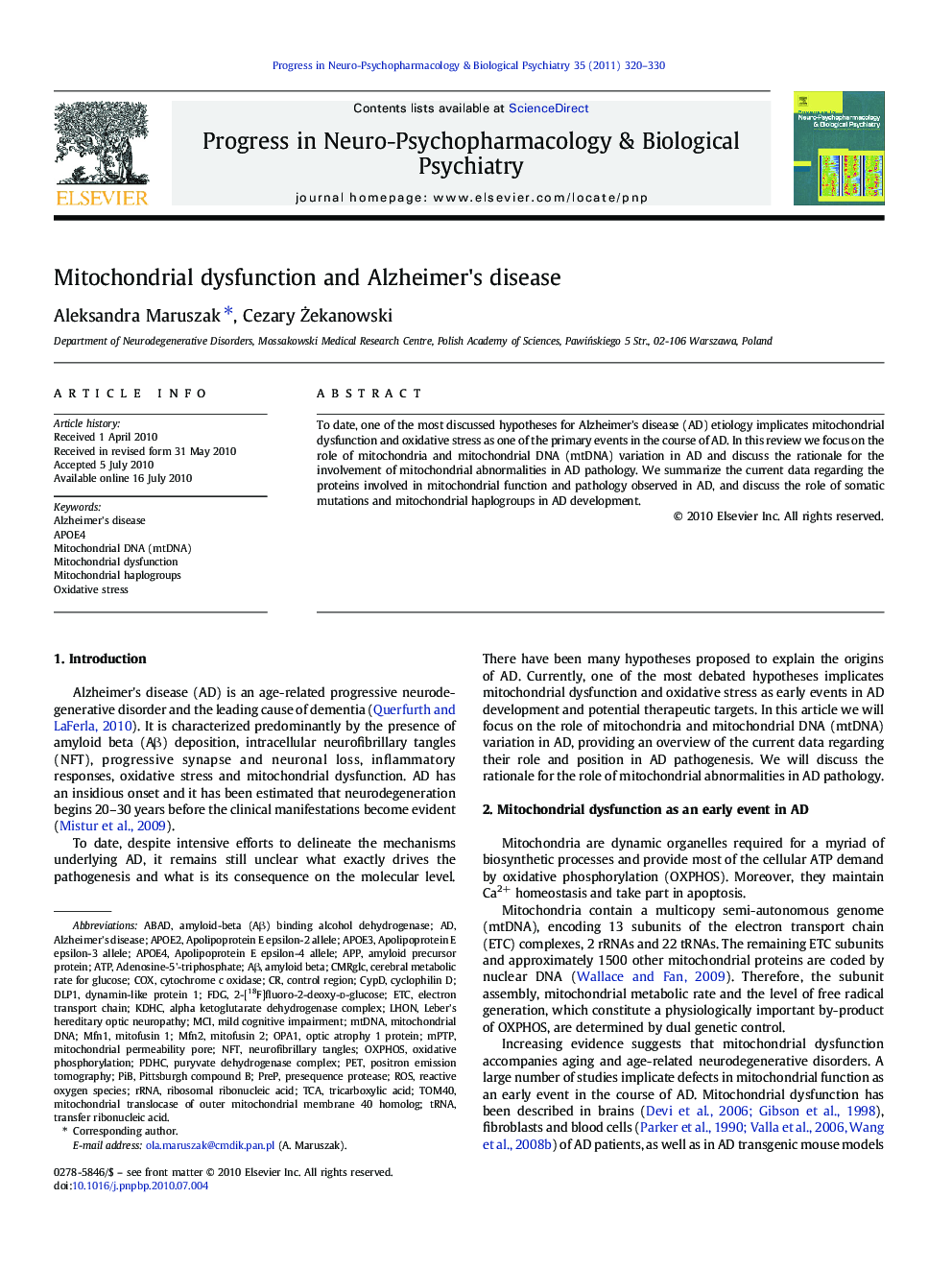| Article ID | Journal | Published Year | Pages | File Type |
|---|---|---|---|---|
| 5845126 | Progress in Neuro-Psychopharmacology and Biological Psychiatry | 2011 | 11 Pages |
Abstract
To date, one of the most discussed hypotheses for Alzheimer's disease (AD) etiology implicates mitochondrial dysfunction and oxidative stress as one of the primary events in the course of AD. In this review we focus on the role of mitochondria and mitochondrial DNA (mtDNA) variation in AD and discuss the rationale for the involvement of mitochondrial abnormalities in AD pathology. We summarize the current data regarding the proteins involved in mitochondrial function and pathology observed in AD, and discuss the role of somatic mutations and mitochondrial haplogroups in AD development.
Keywords
MPTPPiBMFN2Cyclophilin DPrEPApoE3LHONMfn1CMRGlcNFTtRNACypDAPOE4FDGAPPMitochondrial haplogroupsPDHcCOXOXPHOSAβTCAAPOE2rRNADLP1tom402-[18F]fluoro-2-deoxy-d-glucoseMitochondrial DNAMitochondrial DNA (mtDNA)opa1ROSATPMitochondrial dysfunctionmild cognitive impairmenttricarboxylic acidribosomal ribonucleic acidtransfer ribonucleic acidamyloid betaAlzheimer's diseaseOxidative stressPositron emission tomographymtDNAelectron transport chaincytochrome c oxidaseOxidative phosphorylationABADControl regionneurofibrillary tanglesmitofusin 1mitofusin 2cerebral metabolic rate for glucoseLeber's hereditary optic neuropathyMCIETcPETdynamin-like protein 1amyloid precursor proteinPittsburgh compound Bpresequence proteaseReactive oxygen species
Related Topics
Life Sciences
Neuroscience
Biological Psychiatry
Authors
Aleksandra Maruszak, Cezary Żekanowski,
